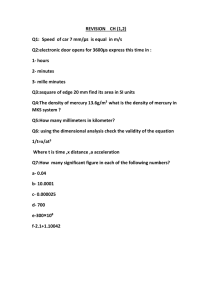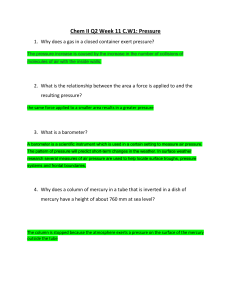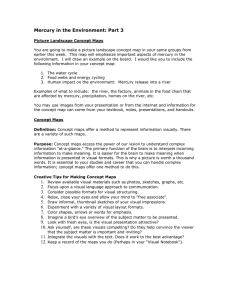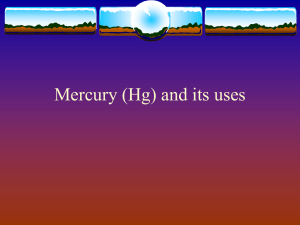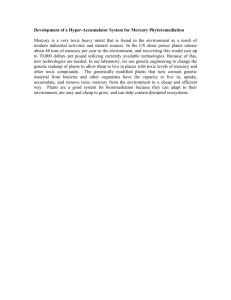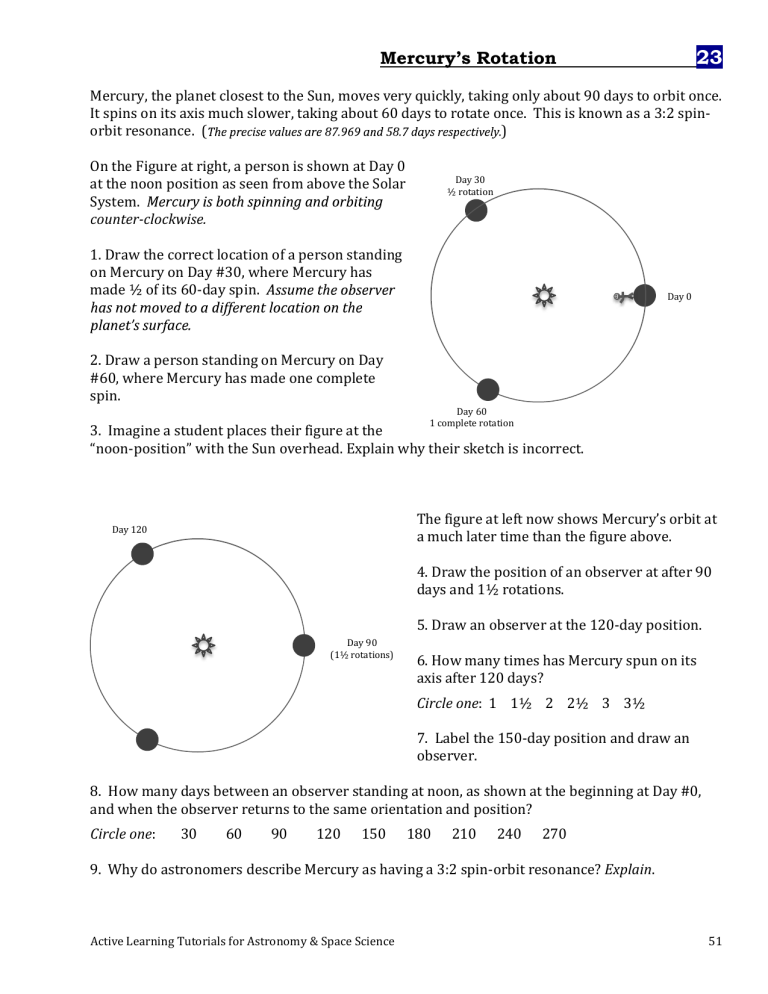
23 Mercury’s Rotation Mercury, the planet closest to the Sun, moves very quickly, taking only about 90 days to orbit once. It spins on its axis much slower, taking about 60 days to rotate once. This is known as a 3:2 spinorbit resonance. ( ) On the Figure at right, a person is shown at Day 0 at the noon position as seen from above the Solar System. counter-clockwise. Day 30 ½ rotation 1. Draw the correct location of a person standing on Mercury on Day #30, where Mercury has made ½ of its 60-day spin. / Day 0 2. Draw a person standing on Mercury on Day #60, where Mercury has made one complete spin. Day 60 1 complete rotation 3. Imagine a student places their figure at the “noon-position” with the Sun overhead. Explain why their sketch is incorrect. The figure at left now shows Mercury’s orbit at a much later time than the figure above. Day 120 4. Draw the position of an observer at after 90 days and 1½ rotations. 5. Draw an observer at the 120-day position. / Day 90 (1½ rotations) 6. How many times has Mercury spun on its axis after 120 days? Circle one: 1 1½ 2 2½ 3 3½ 7. Label the 150-day position and draw an observer. 8. How many days between an observer standing at noon, as shown at the beginning at Day #0, and when the observer returns to the same orientation and position? Circle one: 30 60 90 120 150 180 210 240 270 9. Why do astronomers describe Mercury as having a 3:2 spin-orbit resonance? Explain. Active Learning Tutorials for Astronomy & Space Science 51 52 Field-Test Edition © CAPER 2019
